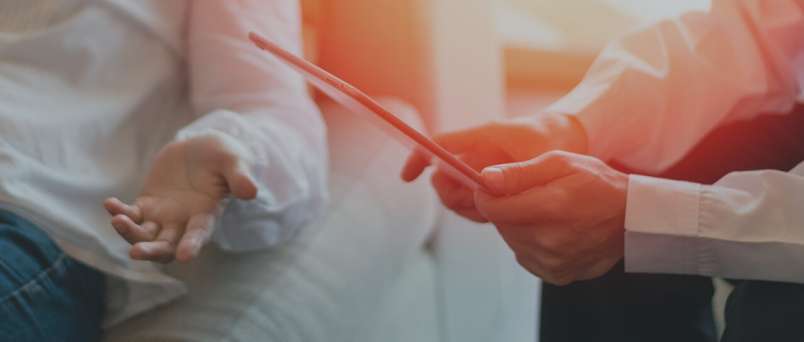Content
Having the occasional nightcap to unwind is no biggie and may help you fall asleep faster. Just keep in mind that alcohol affects everyone differently. Finally, regular drinking has been linked to insomnia and other sleep disorders, especially later in life. If you feel pretty drunk, you’ll probably does alcohol help you sleep fall asleep quickly but have a restless night. That’s because alcohol depresses the central nervous system. It has a sedative effect that helps you relax and makes you drowsy, so you fall asleep faster. Simply put, tryptophan increases serotonin levels, which increases melatonin levels.
These include breathing issues like sleep apnea, which is linked to drinking. The duration of these sleep stages can vary by person and by age. Throughout the night, your brain will cycle through all of the sleep stages multiple times to give you a good night’s rest. The brain then moves on to the next stage of light sleep, but there is an increase in brave wave frequency, followed by a further slowing down.
What Is The Best Nightcap For Sleep? What Alcohol Helps You Sleep Best?
Simply cutting back or giving upalcoholor other drugs can be enough to reverse the negative impacts on your sleep . “Alcohol should not be used as a sleep aid, and regular use of alcohol as a sleep aid may result in alcohol dependence,” he says. When you stop drinking, you might find yourself dealing with cravings for alcohol. Learn why this common response happens and how to cope with it. Also, research shows that people can develop a tolerance to this boozy method within three nights, causing you to need a larger amount of alcohol to get the same effect. REM sleep has a restorative effect and plays a role in memory and concentration. Poor or insufficient REM sleep has been linked to not only grogginess the next day, but also a higher risk of disease and early death.

Research indicates that a moderate dose of alcohol up to an hour before bedtime can reduce melatonin production by nearly 20 percent. Alcohol has a direct effect on circadian rhythms, diminishing the ability of the master biological clock to respond to the light cues that keep it in sync. Those effects of alcohol on the biological clock appear to persist even without additional drinking, according to research. Although consuming alcohol before bedtime helps you fall asleep faster, the popular beverage negatively affects overall sleep quality . When you consume alcohol before bed, your body metabolizes the alcohol throughout the night. As blood alcohol levels rise and fall, alcohol exerts different effects on your sleep. Since alcohol can reduce REM sleep and cause sleep disruptions, people who drink before bed often experience insomnia symptoms and feel excessively sleepy the following day.
Physical Activity And Sleep
A recent study compared the effects of an alcohol dose of 0.5 g/kg on the sleep of insomniacs and age-matched healthy people (Roehrs et al. 1999). In the insomniacs, but not in the healthy control subjects, this alcohol dose improved sleep compared with a placebo. Further-more, the sleep disruption during the second half of the night that occurs in healthy people after higher alcohol doses was not observed in the insomniacs. Specifically, alcohol consumption in the insomniacs increased their SWS to the levels of the age-matched control subjects. Although alcohol generally is classified as a depressant drug, in fact it has both sedative and stimulatory effects. These differential (i.e., biphasic) effects are dependent on the alcohol dose consumed and on the phase of the BAC . Thus, stimulatory effects are evident primarily at low-to moderate alcohol doses and when BACs ascend to a peak.
6 ways to hit your sleep ‘sweet spot’ – The Daily Briefing
6 ways to hit your sleep ‘sweet spot’.
Posted: Wed, 08 Dec 2021 17:04:03 GMT [source]
“It is not the same good sleep that you would get if you naturally fell asleep without the aid of this sedative.” Yes, alcohol can make you drowsy and help you fall asleep, but overall, it results in poorer sleep quality throughout the night. Whether you’ve had a long day at work or watching the sunset on a lazy Sunday, you deserve a quality nightcap. If you drink alcohol at night and have trouble falling or staying asleep, you might wonder how long you should wait between your last drink and going to bed so your sleep isn’t impacted. Looking for more teas that help you sleep besides chamomile? As a bonus, the soothing warmth of tea can also help prep your body to rest after a harried day.
Alcohol And Sleep
Data from healthy people suggest, however, that tolerance to alcohol’s sedative effects probably develops rapidly. This tolerance development may lead to excessive hypnotic use and, possibly, excessive daytime use for insomniacs. Some investigators have separately analyzed alcohol’s effects during the first and second half of the nighttime sleep period.
Ideally, you should wake up and go to bed at the same time each day. Stimulants such as caffeine should be avoided, especially at night. Using electronics like TV or smartphones before bed should also be avoided. Shaking this addiction and learning to sleep without alcohol can be difficult.
How Soon Before Bed Should You Stop Drinking Water?
Medical Reviewers confirm the content is thorough and accurate, reflecting the latest evidence-based research. Content is reviewed before publication and upon substantial updates. Verywell Health’s content is for informational and educational purposes only. Our website is not intended to be a substitute for professional medical advice, diagnosis, or treatment.
Get plenty of sleep
Eat well
Avoid alcohol, smoking and drugs
Get plenty of sunlight
Manage stress
Activity and exercise
Do something you enjoy
Connect with others and be sociable
ask for helphi yall heres what i gathered to help with your mental health 🙂 hope it helps!
— ABCD (@Kruuunch) December 7, 2021
Second, alcohol is dehydrating to the body, which can make you feel hot, lead to night sweats, and also wake you up because you’re thirsty. ” is in part due to the fact that 20% of Americans use alcohol to fall asleep at night. It makes sense if you’re having trouble sleeping since alcohol can make you drowsy. Obviously, the best solution to avoid a disrupted night’s sleep is not to drink, or to have only one or two drinks early in the evening. If you have sleep issues, it might be time to talk to your doctor about conducting a sleep study, to rule out any underlying medical diagnosis. Alcohol can disrupt your circadian rhythms, which typically help you fall asleep at night.
Health & Wellness Tips
Sleep apnea, or when you temporarily stop breathing throughout the night, is a major disruption in sleep quality, even if you don’t remember waking up, Heinzenberg says. It’s important to treat sleep disorders such as insomnia or sleep apnea if they are present. Alcohol may be consumed in beer, wine, and hard liquors like vodka, rum, gin, and whiskey. It is more often consumed at night, also called a nightcap, and may negatively affect your sleep. While alcohol can make you feel tired at first, it can also disturb your sleep as it wears off. This article explores how alcohol affects your quality of sleep. It also covers what symptoms you might have if you don’t wait long enough between having your last drink and going to bed.
- Alcohol only makes the issue worse, and can lead to sleep interruptions throughout the night for you and your partner.
- Alcohol can cause insomnia because of the damage that alcohol can do to your sleep cycles and circadian rhythm.
- First, alcohol affects everyone differently because of a slew of factors, like age, biological sex, and body composition, just to name a few.
- Taking the time to write down your thoughts in a journal or diary before bed is a great way to “unload” everything on your mind—basically, those things that keep you up at night.
Proceed with caution when drinking before bedtime, as alcohol may be affecting your sleep more than you realize. This may be especially true if you drink alcohol to help you fall asleep faster, and then experience disrupted sleep later in the night without realizing it. Since even small amounts of alcohol can affect your sleep, the overwhelming consensus in the medical community is that alcohol is not an appropriate sleep aid . Alcohol is a central nervous system depressant that causes brain activity to slow down. Alcohol has sedative effects that can induce feelings of relaxation and sleepiness, but the consumption of alcohol – especially in excess – has been linked to poor sleep quality and duration. People with alcohol use disorders commonly experience insomnia symptoms. Studies have shown that alcohol use can exacerbate the symptoms of sleep apnea.
How Alcohol Affects People With Insomnia
This fragmentation of sleep continuity is characterized by increased amounts of stage 1 sleep and brief awakenings. Although unlikely at the low dose used, caffeine’s own REM-suppressive effects may have been responsible for the REM suppression observed. Together with other hormones, prolactin regulates growth and development of the mammary glands and tinitiation and maintenance of milk production in nursing women. A standard drink is defined as one 12-ounce bottle of beer or wine cooler, one 5-ounce glass of wine, and 1.5 ounces of 80 proof distilled spirits. The electromyogram , which measures the electrical activity of muscles through electrodes placed on the skin in various body regions. This technique can measure even small muscle movement during sleep, such as twitching. Try and drink two glasses of water for every alcoholic drink.

The AASM has a combined membership of 11,000 accredited member sleep centers and individual members, including physicians, scientists and other health care professionals (aasm.org). GABA is the major inhibitory neurotransmitter system in the CNS–that is, its interaction with the signal-receiving neuron dampens the ability of that neuron to generate a new nerve signal. The electroencephalogram , which traces the electrical activity of the brain through electrodes placed on the scalp. These measurements produce characteristic brain waves called alpha, beta, delta, and theta rhythms, which differ in their frequencies. Your call is confidential, and there’s no pressure to commit to treatment until you’re ready.
Japanese Alcohol Culture
Conversely, alcohol’s sedative effects occur at higher alcohol doses and when BACs decline. Nighttime sleep studies that demonstrated alcohol’s sedative effects (i.e., reduced sleep latencies) in healthy people typically used alcohol doses that resulted in BrACs above 0.05 percent . Furthermore, the alcohol generally was administered 30 to 60 minutes before sleep, thus allowing for alcohol concentrations to peak before bedtime. Sober living houses These impairing effects persisted for at least 2 hours after the alcohol had been completely metabolized as evidenced by BrACs of 0 . Alcohol may also exert some of its effects on sleep by influencing the circadian rhythm. The circadian rhythm is responsible for keeping the body anchored to a 24-hour cycle. As part of this 24-hour cycle, the body releases a hormone called melatonin to prepare us for sleep in the evening.





